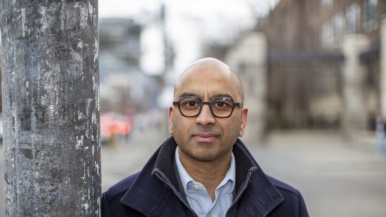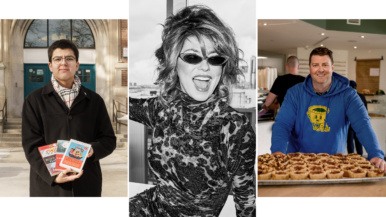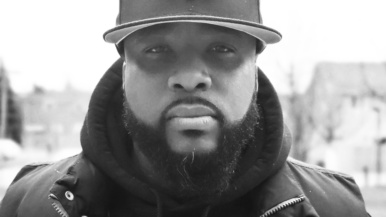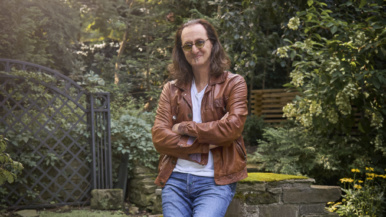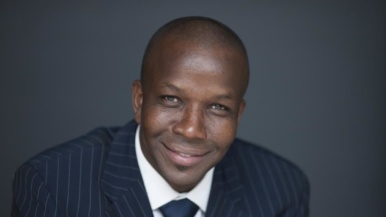Q&A: Monica Bodirsky, a practising witch, on Canada’s newly repealed witchcraft ban

Last week, updates to the criminal code repealed a law that made it illegal to practise (or pretend to practise) witchcraft in Canada. The change came just in time for yesterday’s summer solstice, an important day on the Pagan calendar. Monica Bodirsky is a practising Toronto witch, artist and OCAD prof who spoke with Toronto Life about what it means to see her lifestyle legalized, how she feels about fashion witches and why—for the last time—she is no friend of the devil.
What does the decriminalization of witchcraft mean to you as a witch?
It means a lot in principle. [Our government] has finally gotten to addressing a very outdated and archaic law. By bringing this law to the forefront and saying it is outdated, I feel, like a lot of people I know, somewhat vindicated. Just the thought of something being illegal is enough to make some people feel guilty or like they’re doing something wrong. We’ve been freed up not to have any baggage about practising. Not that I have [any baggage]—I’m not that young any more.
Why do you think such an outdated law stuck around for so long?
People may have interpreted the law as overtly Christian and against devil worship. I never read it that way. My understanding is that its intent was to stop folks from getting conned by people posing as witches—people who would fool others into thinking that they had curses thrown on them and then charge exorbitant amounts to have the curses removed.
So people committing fraud, which remains illegal.
Yes. Fraud is fraud, period. That’s what the fraud squad is for.
Do you subscribe to any particular style of witchcraft?
I don’t follow Gardnerian or Alexandrian Wicca philosophies, which are connected to a religion—there is a church of Wicca in Canada. I practise an earth-based spirituality. My connection is directly to the elements and the earth and nature. A big part of my witch practice is to be a steward for our environment because we are doing such extreme damage. It’s also about reclaiming a word that was once used to put down older women who may have been different or no longer considered beautiful, or held knowledge that people found frightening. And it’s about the right use of intent—taking responsibility for yourself and your actions and the right use of power.
So far, it sounds like you’re an environmentalist slash feminist slash amateur Oprah.
The spirituality is where people get stuck. They’re fine with feminism and environmentalism, but when you start talking about energy, intent, spellcraft, practical magic, then you start losing people. It’s like you’ve suddenly gone from being rational to “You’ve lost your mind.”
Maybe it’s because as kids we often learn about witches in the same context as monsters and goblins, and those bad guy associations stick.
Right. And this is where feminism comes into play for me. Women and power is an uncomfortable mix historically. When you look at certain films, you see women who are empowered and who are going to use that power for evil. That stereotype is so pervasive.
How did you first realize your powers?
I have a hereditary lineage. My maternal ancestors were village advisers who used certain forms of divination: cards, tea leaves. They had certain seeing abilities with dreams and mediumship abilities, so I’m carrying on something I believe I was born with and marrying that with my philosophies. As a kid, I would have dreams or very strong feelings or see what someone was thinking. I remember adults would be shocked at what I was saying. At the time, I thought that was just because I was speaking out, but then when I got a bit older, people would explain to me that they were shocked because what I was saying was true. I could tell if someone was sick even though they hadn’t told anyone. Or I could tell when someone was lying.
Until last week, your lifestyle was technically illegal. Did that ever present any problems?
Not overtly, but there are subtle ways that people experience prejudice. You may not get hired for certain positions or you don’t get pushed up the ladder. I don’t think people fear witchcraft as much as they just think that you’ve lost your mind.
Has it ever been an issue at OCAD, where you are a sessional instructor?
It hasn’t been a problem. I began teaching there when I was an established artist. And it is an art and design university, so I think they’re fairly open-minded. My witchcraft doesn’t come out in my class, because that would be inappropriate.
Yesterday was the summer solstice. What does that represent on the witch calendar?
It means different things to different witches. It is the longest day of the year, so if you’re a witch who follows nature, you build momentum in your plans as the sun is increasing, because the sun has a certain power to assist you and give strength. For me, that means working on watercolours and building a Tarot deck. After the longest day, we enter the dark half of the year, which is a time to reflect.
Witchcraft is becoming more mainstream at a time when our world feels particularly uncertain. Is there a connection there?
There’s definitely a great psychological element at play. For me, it’s a way of life, but some people who feel terribly without power and control will gravitate towards something that offers that. It gives them a sense of being able to control their environment when otherwise they wouldn’t, so yes, you tend to see witchcraft becoming popular during times of unrest.
Witchcraft has also been embraced in all sorts of commercial realms, from health and beauty to home décor. How do you feel about that?
Personally, I’m happy that it’s out there and available and not hidden. When I was young, that was not the case. If people want to purchase a little “witch bling,” as we refer to it, that’s okay. You don’t need expensive tools to work magic, but by making these things available, it increases awareness and makes it not so peculiar. It’s not in a back room where you have to pick up a quartz crystal as if you’re doing some crazy drug deal.
So you don’t look at the Coachella girls in their pentagram necklaces and drapey black and think—oh, please!
Quite honestly, if somebody wishes to be a fashion witch and adopt a certain look without any of the intent, I’m not too concerned about it. I don’t feel that’s threatening in any way, and because I don’t follow witchcraft as a religion, I don’t see it as particularly disrespectful. People who are interested in the trend will move onto whatever is next.
Is there anything else you would like people to understand about witches or your life as a witch?
I think people would be surprised by how many professionals I know within the university, within the legal profession, within the police force who identify as witches. I would also like to mention that I do not worship the devil. There is no devil in my practice.
Okay, one more possible misconception to get out of the way: Do you own any pointy hats?
I do indeed, but I only bring them out at Halloween to celebrate. It’s the time of year that you can embrace the stereotype.
